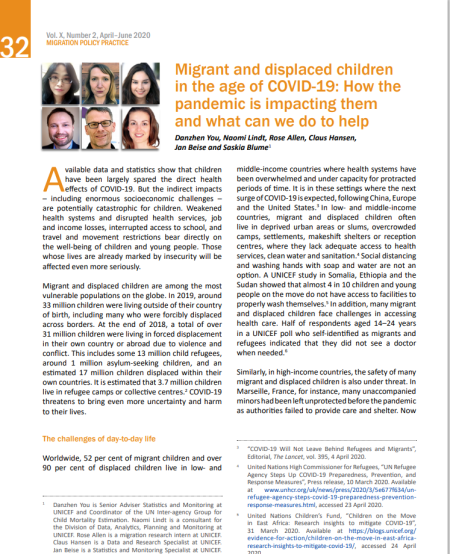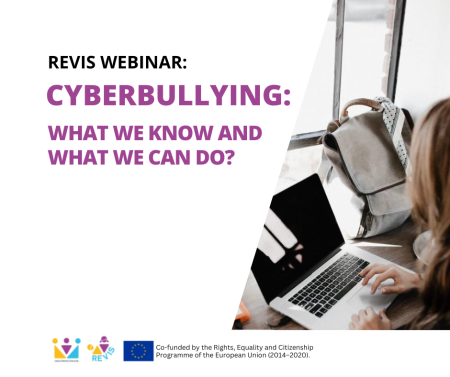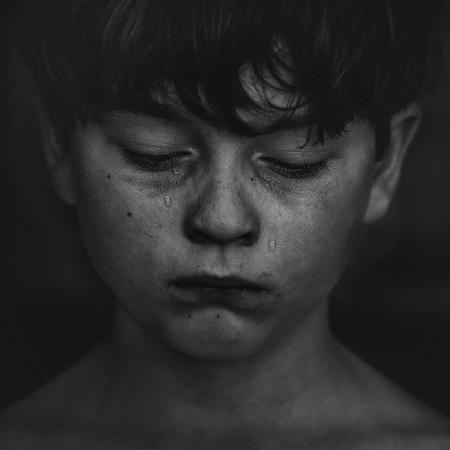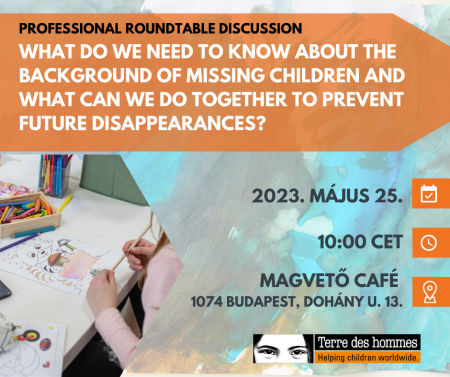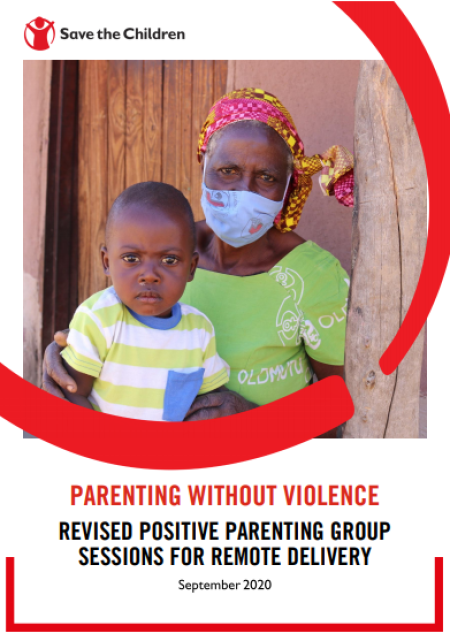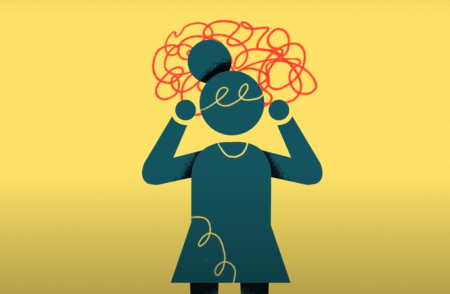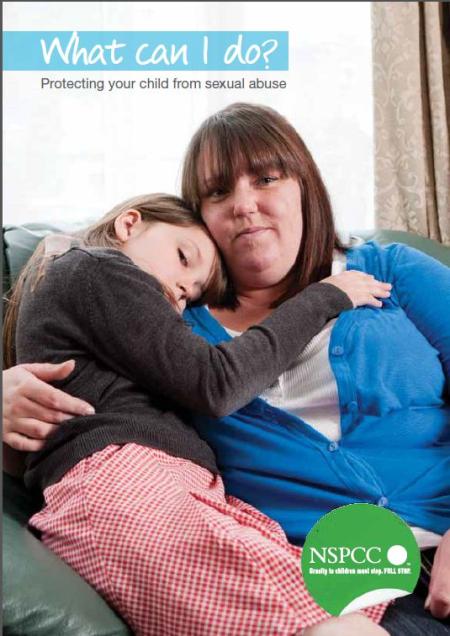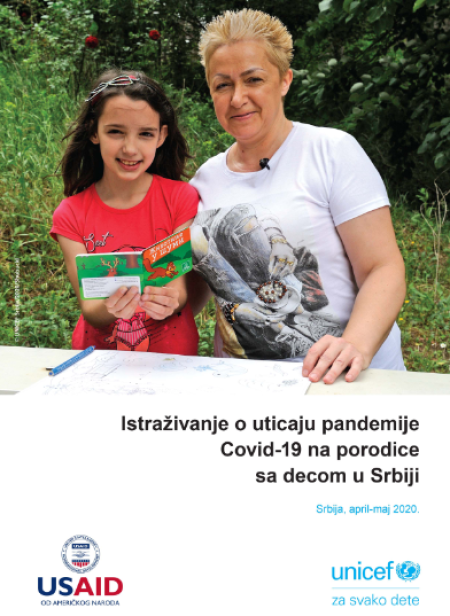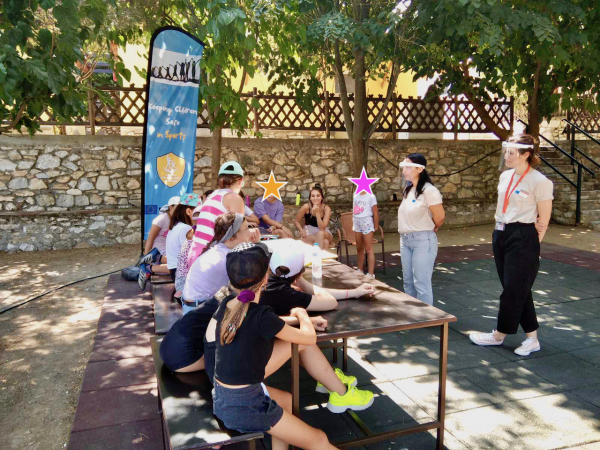
Available data and statistics show that children have been largely spared the direct health effects of COVID-19. But the indirect impacts – including enormous socioeconomic challenges – are potentially catastrophic for children. Weakened health systems and disrupted health services, job and income losses, interrupted access to school, and travel and movement restrictions bear directly on the well-being of children and young people. Those whose lives are already marked by insecurity will be affected even more seriously.
Migrant and displaced children are among the most vulnerable populations on the globe. In 2019, around 33 million children were living outside of their country of birth, including many who were forcibly displaced across borders. At the end of 2018, a total of over 31 million children were living in forced displacement in their own country or abroad due to violence and conflict. This includes some 13 million child refugees, around 1 million asylum-seeking children, and an estimated 17 million children displaced within their own countries. It is estimated that 3.7 million children live in refugee camps or collective centres. COVID-19 threatens to bring even more uncertainty and harm to their lives.
This article presents the many challenges and barriers faced by migrant and displaced children due to the COVID-19 pandemic, through 4 main dimenesions of risks for children: 1) Impacts on poverty; 2) Impacts on survival and health; 3) Impacts on education; and 4) Impacts on protection and safety. The article concludes with a set of policies and actions that should be taken to mitigate the risks that migrant and displaced children are facing.


